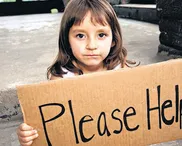As a Christian, I would like to think that abuse cannot occur in Christian families.
The sad fact is that after many years of counselling both Christians and non-Christians, I have to conclude that Christian parents can sexually abuse their children - even when they are respected members of the best evangelical churches.
Statements about sexual abuse are shocking when they occur in the community, but when we are told it can happen in a church, we are tempted simply not to believe it. The uncomfortable reality is that it can. Both research and clinical experience show that Christian parents can, and sometimes do, sexually abuse their children. In a survey of 643 adult members of the Christian Reformed Church in the United States, 3% admitted to committing some form of sexual abuse of either adults or children.(1) While no statistics so far exist for British churches, the clinical evidence indicates that sexual abuse is no less a problem in this country. Patrick Parkinson, author of the book Child Sexual Abuse and the Churches states: 'From all the evidence, it is clear that sex offenders are found in all denominations . . .' (2)





